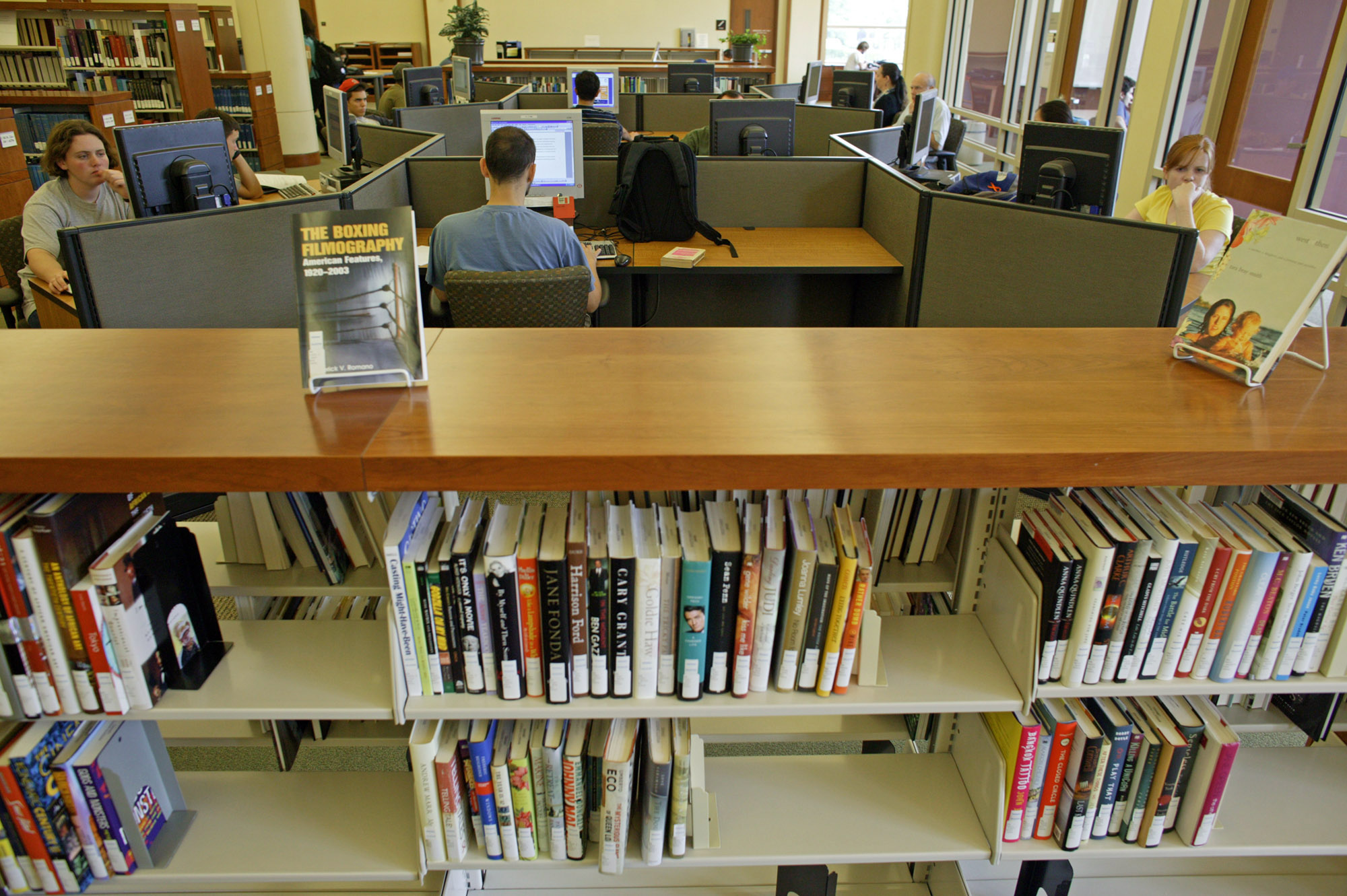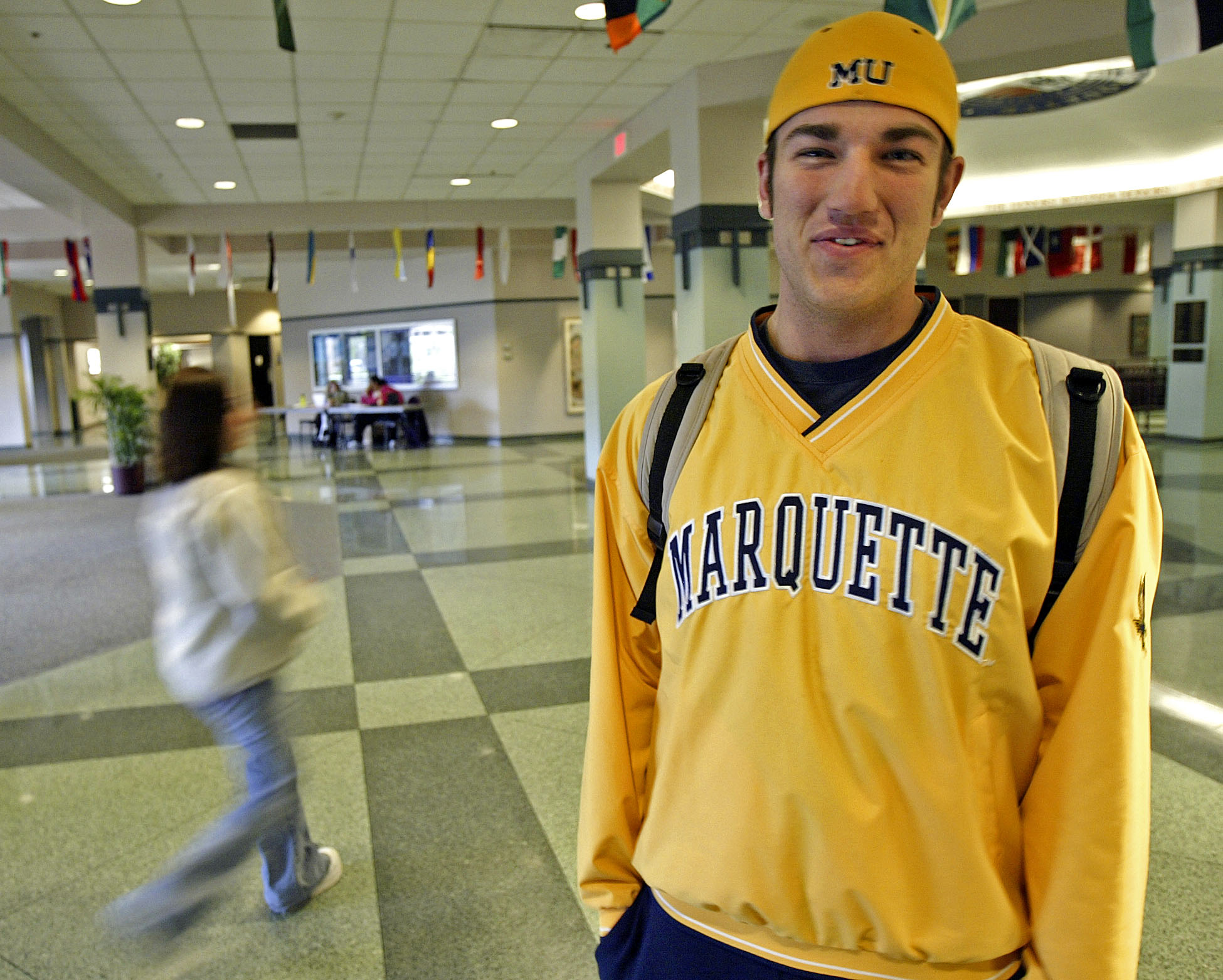MILWAUKEE (SPECTRUM NEWS) -- Milwaukee Health Department approved Marquette University's re-opening plan. The university announced Wednesday they will re-open in the fall.
Marquette calls their recovery plan a "phased approach," where they could move forward, or backward, with ease.
Classes will be offered in-person, online and as hybrid learning. As the semester continues and the pandemic develops, additional hybrid and online options will be added if possible. Class size has been reduced to include no more than 50 people and will be physically distanced.

First-year undergraduate students who opt to take all of their courses online are able to live at home and waive the requirement to live in an on-campus dorm. Any first-year student who is taking a minimum of one hybrid or in-person class is still required to live in the dorms.
All sophomores, regardless of class delivery method, are no longer required to live on campus. Sophomores are able to stay in their assigned dorm, live in an on-campus apartment, move off-campus or learn from home.
Upperclassmen living in Marquette-owned apartments can be released from their leases if they are taking all of their classes online. Students living at the Marq and students living in off-campus housing need to work with their landlords.
Marquette has sectioned off multiple rooms in residence halls for any student that has been infected with coronavirus to quarantine in. Students living in off-campus housing may request to use the rooms if needed.
The university is planning to grow its medical staff. Students, faculty and staff will be screened daily for COVID-19. There will also be an on-campus testing center to test symptomatic students and anyone who has come in close contact with them.
Marquette is promising flexibility for students.
Natalie Allen, a sophomore biology student at Marquette, recently conducted a study in conjunction with Marquette's student media organization, the Marquette Wire. Allen released a student survey that brought in nearly 1,000 responses.
"I wasn't sure what to expect. People did rate that they wanted to be back at school, but a lot of people did seem concerned about the safety of going back," Allen says. "A lot of people were voicing worries that they had about (whether we would) be adversely impacting the city of Milwaukee." Students were time and time again concerned about the city's residents and if reopening campus would overload area-hospitals.

The study showed that 87.7 percent of surveyed students say that students should be able to waive the requirement to live in residence halls and 79.3 percent of students wanted Marquette to offer options to complete the semester 100 percent online. 73 percent of students say professors should be able to teach remotely if they so choose.
As of Aug. 5, 116 faculty and staff employed by Marquette have signed a letter asking that professors be able to teach online at their own discretion
"Faculty have their own needs. They're human beings, too," Alexandre Martins, a nursing and theology professor who signed the letter, says. "They're a riskier group, and they're scared," He says many faculty are over 60 and either have underlying health conditions or live with someone who does.
Professors are able to request that their classes be online-only, but that is not guaranteed to be granted as of now.
Martins says those extremely individualized requests aren't being processed how faculty wants. He wants to see policies on how the college is handling faculty's safety concerns.
"Being flexible is a way to try to be sensitive for everyone's needs."
The letter also asks Marquette for additional compensation if their workload increases, representation on the University Financial Planning and Review Committee and a plan to help international students stay in the United States.
Martins, who teaches courses like Global and Community-Based Health and Bioethics for Health Care, doesn't think the US prepared well for the pandemic despite knowing it was coming.
Like students who took Allen's survey, he notes that Marquette's decisions are vital not only to the school's community but also to Milwaukee. Marquette brings about 8,500 undergraduate students and 3,000 graduate students to the city every school year.
"At the beginning of the pandemic, Marquette leadership did a good job and closed the campus early," Martins says. Campus closed in March and students did not return after being released for spring break. "At that moment...the community worked together very well."
"Moving beyond that to (where we are) now...I just have some concerns." Martins says he thinks the university and those leading the re-opening plan are hesitant to listen to perspectives that would challenge their thought process. He wants the school to take into account student and faculty voices as they continue to make decisions related to the pandemic.
"I wish Marquette had more technical data from what students think," Martins says. Marquette has continually claimed most students want to come back to campus. Martins does not know where that statistic is coming from.
Allen doesn't either. Her survey shows that almost 30 percent of students do not think Marquette should re-open. Martins thinks her survey is significantly important.
Marquette has hosted a few virtual town hall forums, but Martins thinks there should have been more of those. He says the discussion should start at the bottom and then reach the top.
"I am worried about the safety level of (going back to school), and I think Marquette is overestimating their ability to control the actions of students on campus," Allen says. "If students are on campus, they're going to want to study together and hang out. I feel like that can very quickly lead to a lot of cases at once."
She understands the university will face financial hardships should they go completely online. But even though she feels like she gets more out of her classes in person, she says they need to convey the urgency of the plans.
Another student, Alissa Wuorinen, who will be a senior this year, says that social life is also a major concern. She echoes Allen's sentiment that the university cannot truly control the actions of students.
"I would feel okay with having in-person class if the classes were small enough and in a large enough space," she says. "The living aspect of being on campus is what I'm most worried about. Even throughout the summer when there haven't been as many people on campus, we can still look out the window and see that there are parties happening where no one's wearing masks and no one's social distancing."
Marquette has said it does not support social gatherings of more than 10 people.
"I really don't think they'll be able to enforce that as well as they would like to. I'm not sure that I really trust the student body to completely stay home all of the time," Wuorinen says.
After an outbreak at a university in Washington where nearly 120 fraternity members tested positive for coronavirus earlier this summer, students' concerns on the social aspects of college aren't unprecedented.
Shay O'Brien, a Marquette senior and the president of Marquette Panhellenic Association, which oversees all campus sororities, says safety is her number one priority. Greek life social events have been suspended. She says that if there were to be an outbreak in a chapter, she would hope they could get into the designated quarantine dorms. This is primarily a concern in chapter housing, which hosts upwards of 20 students per semester, per house.
Like Greek life, most clubs and organizations are looking to university leadership while they plan for next semester. Marquette says co-curricular events will be limited and most will be executed virtually.
The school also announced Wednesday that all in-person commencement events for the class of 2020, originally postponed to Aug. 30, are canceled. There are no plans to hold a virtual graduation event, but there will be a virtual mass.
In a statement to the youngest alumni, the university says:
"Though our great hope was to bring you the celebratory rite of passage you deserve, public health guidance and local government orders — including event capacity limits and travel restrictions — made it unfeasible to host an in-person ceremony befitting the stature of a proper Marquette Commencement."
The university's official and complete regulations are still developing alongside the pandemic. Marquette University officials are not offering interviews at this time.


